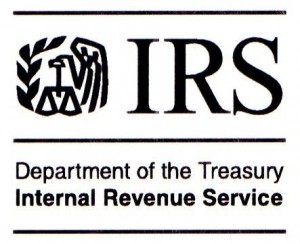LOS ANGELES
 An Orange County man was sentenced Wednesday to 30 months in federal prison for knowingly preparing nearly 400 fraudulent federal income tax returns.
An Orange County man was sentenced Wednesday to 30 months in federal prison for knowingly preparing nearly 400 fraudulent federal income tax returns.
The fraudulent tax returns caused a loss of more than $750,000 to the IRS by inflating his clients’ tax refunds without their knowledge.
The defendant, Raudel Sandoval, pocketed the difference between the clients’ true and inflated refunds.
U.S. District Judge Sherilyn Peace Garnett also ordered Sandoval to pay $758,550 in restitution.
Sandoval pleaded guilty on March 22 to two counts of aiding and assisting in preparing false and fraudulent tax returns.
Sandoval is a licensed tax preparer and owns RSE Sandoval España Inc., a Downey-based tax preparation company.
Sandoval willfully prepared hundreds of false federal and state income tax returns for clients for the tax years 2015 through 2018.
On these returns, he claimed false or inflated amounts of the child tax credit, business losses, short-term capital losses, and other items to which the taxpayer clients were not entitled.
 He falsified the tax returns with deductions and credits that his clients did not incur or had not informed him about. Sandoval also inflated the amounts of deductions and credits that his clients were entitled to claim.
He falsified the tax returns with deductions and credits that his clients did not incur or had not informed him about. Sandoval also inflated the amounts of deductions and credits that his clients were entitled to claim.
When he finished preparing a tax return, Sandoval gave his clients copies of their true and correct returns but falsely told them that he would file their true and correct copies with the IRS on their behalf.
Then, Sandoval inflated his clients’ returns with false and fraudulent deductions and credits and filed these false tax returns with the IRS. The false returns showed a larger refund than on the true-and-correct copies Sandoval had given to his clients.
 Sandoval then directed the inflated refunds to himself. He did so by changing the bank account and routing numbers on the filed returns to a bank account he controlled. Sandoval controlled more than 100 bank accounts with several different banks and opened many of the accounts in his clients’ names. But he was the accounts’ only authorized signor. Several of the Sandoval-owned bank accounts had the name “Federal Tax Refund Processing.”
Sandoval then directed the inflated refunds to himself. He did so by changing the bank account and routing numbers on the filed returns to a bank account he controlled. Sandoval controlled more than 100 bank accounts with several different banks and opened many of the accounts in his clients’ names. But he was the accounts’ only authorized signor. Several of the Sandoval-owned bank accounts had the name “Federal Tax Refund Processing.”
He directed the IRS to send the inflated refunds through a third-party refund processor to be deposited into an account he controlled. Other times, Sandoval caused the IRS to mail a check for the inflated refund to his business address.
He then deposited the check into one of his accounts.
After receiving the inflated refund, Sandoval transferred a portion of the amount his clients expected to receive based on the true-and-correct tax return copies to one of his “Federal Tax Refund Processing” accounts.
Sandoval then transferred that money to his client’s bank accounts, causing them to believe their refunds were from a legitimate government source.
Sandoval kept the difference between the true refund and the inflated refund.
For the tax years 2015 through 2018, Sandoval willfully understated his clients’ tax liabilities and caused a loss of $758,550 to the IRS by the filing at least 389 fraudulent income tax returns.
“[Sandoval] enriched himself while depriving the United States Treasury of money by artificially inflating his clients’ refunds,” prosecutors argued in a sentencing memorandum. “[Sandoval] needlessly exposed his clients to a risk that the IRS would hold them accountable for the loss caused by the inflated refund amount. In addition, [Sandoval] charged his clients to prepare the returns, of which he had hundreds, then to use their returns as a vehicle for crime.”
IRS Criminal Investigation investigated this matter.
Assistant United States Attorney Valerie L. Makarewicz of the Major Frauds Section prosecuted this case.
As the tax season continues, taxpayers seeking a return preparer should remain vigilant against unscrupulous tax preparers. The IRS offers tips on how to accurately file returns and how to choose a tax return preparer, as well as steps taxpayers can take to get a jumpstart on filing.
Taxpayers seeking assistance can access the IRS’s free directory of federal tax preparers.
The IRS also has programs offering free essential return preparation for qualifying seniors and individuals with low to moderate incomes.
In addition, IRS Free File, a public-private partnership, offers free online tax preparation and filing options on IRS partner websites for individuals whose adjusted gross income is under $72,000.
For individuals whose income is over that threshold, IRS Free File offers electronical federal tax forms that can be filled out and filed online for free.

